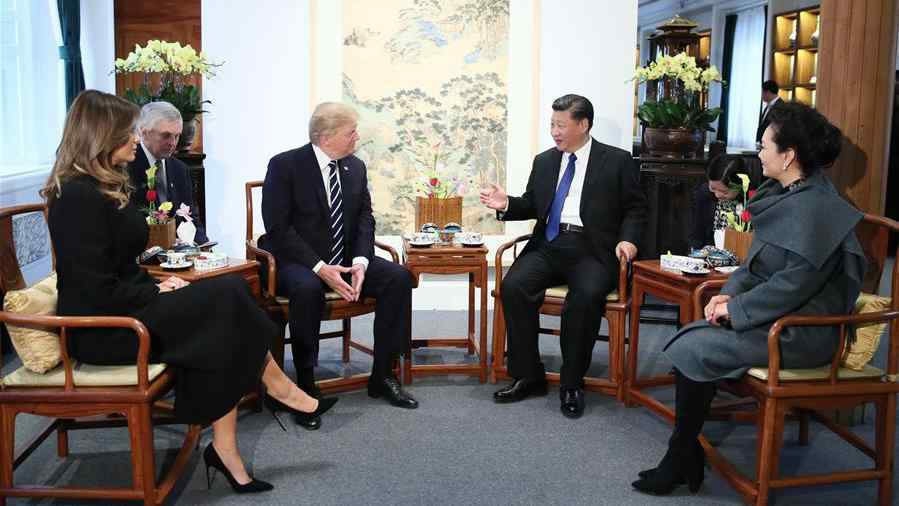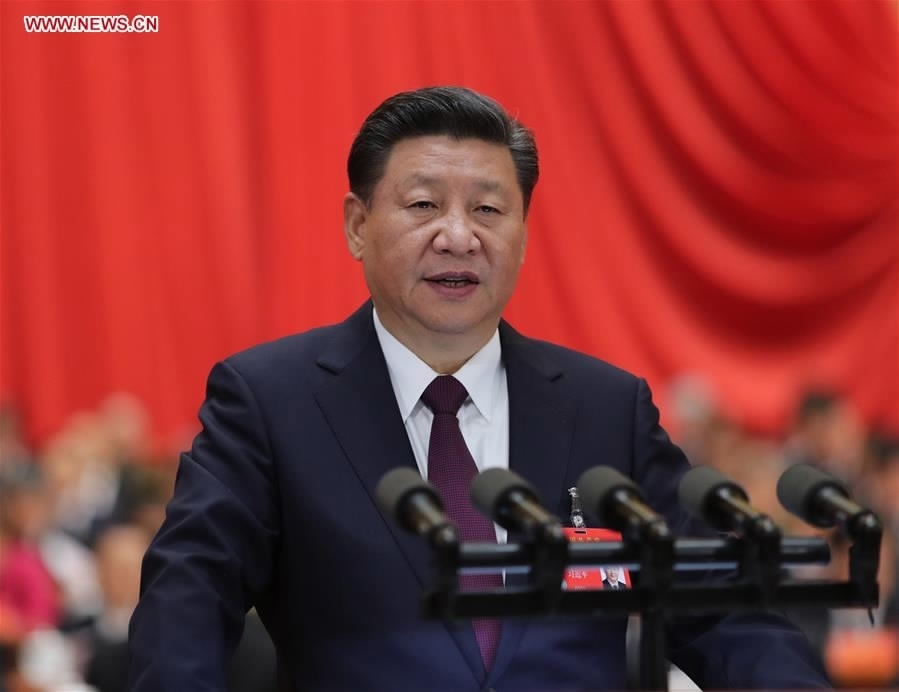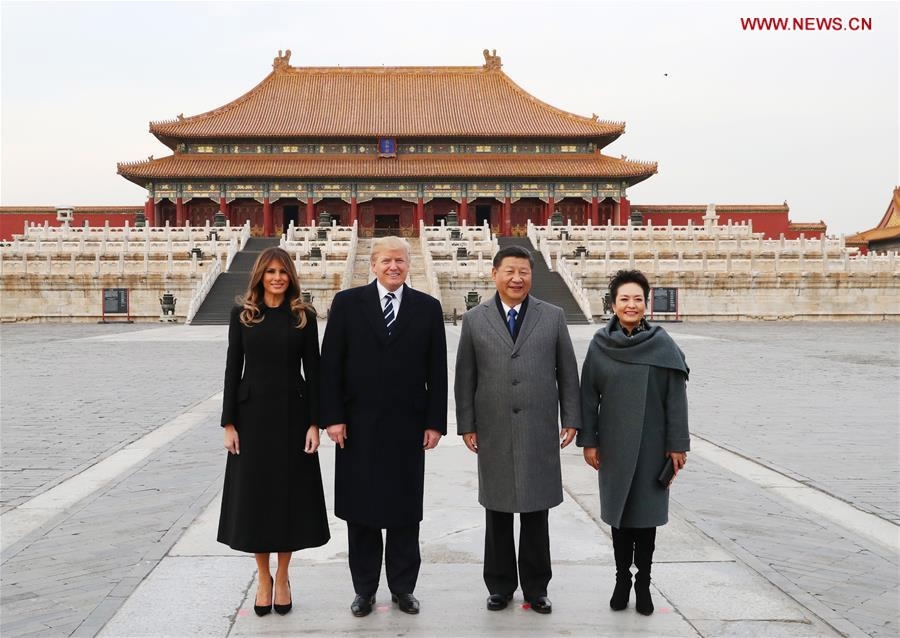
Opinions
10:41, 09-Nov-2017
Opinion: Mutual respect and win-win cooperation remain a solid foundation for Sino-US relationship
Guest commentary Dr. Summer

US President Donald Trump is on a three-day state visit to China. He is the first foreign head of state to visit China since the Communist Party of China (CPC) concluded its 19th National Congress last month.
Trump’s visit also coincides with the date when he won the presidential election a year ago. So, this tour is widely seen as a momentous occasion for the two leaders to set the tone for the relations between the two countries.
Although there are many expectations, and different predictions on the third face-to-face meeting between the two presidents, we have to wait till the official announcement is made at the end of the visit. However, we can find some clues to the answer by listening to what has been said by both sides on the issue.
In his report to the 19th CPC National Congress, Xi Jinping says that China will stay on the path of peaceful development, and continue to pursue a mutually beneficial strategy of opening up.

October 18, 2017: Xi Jinping delivers a report to the 19th National Congress of the Communist Party of China on behalf of the 18th CPC Central Committee of at the Great Hall of the People in Beijing, capital of China. /Xinhua Photo
October 18, 2017: Xi Jinping delivers a report to the 19th National Congress of the Communist Party of China on behalf of the 18th CPC Central Committee of at the Great Hall of the People in Beijing, capital of China. /Xinhua Photo
He stresses that China remains firm in its commitment to strengthening friendship and cooperation with other countries on the basis of the Five Principles of Peaceful Coexistence (namely: mutual respect for sovereignty and territorial integrity, mutual nonaggression, mutual noninterference in each other’s internal affairs, equality and mutual benefit, and peaceful coexistence) and to forging a new form of international relations featuring mutual respect, fairness, justice, and win-win cooperation. These principles apply to China’s foreign policy to all other countries, including the United States of America.
US National Security Adviser H.R. McMaster said in Washington Thursday that President Trump looked forward to his visit to China, and was ready to work with Beijing to promote peace and prosperity in the region and beyond.
His views were also echoed by Terry Branstad, US ambassador to China while commenting on the Trump-Xi meeting. Branstad said that the meeting between the two presidents would be helpful in resolving "thorny issues," adding that a strong US-China relationship would benefit the entire world.
Some people are talking about China’s development is a threat to the US. They based their argument on cases in bygone history. Over the past centuries, the state-to-state relationship has been like sports; the strong and powerful becomes a winner by defeating the weaker and poorer.

Chinese President Xi Jinping (2nd R) and his wife Peng Liyuan (R), and US President Donald Trump (2nd L) and his wife Melania Trump pose for a photo in front of Taihedian, the Hall of Supreme Harmony, during their visit to the Palace Museum, or the Forbidden City, in Beijing, capital of China, Nov. 8, 2017. /Xinhua Photo
Chinese President Xi Jinping (2nd R) and his wife Peng Liyuan (R), and US President Donald Trump (2nd L) and his wife Melania Trump pose for a photo in front of Taihedian, the Hall of Supreme Harmony, during their visit to the Palace Museum, or the Forbidden City, in Beijing, capital of China, Nov. 8, 2017. /Xinhua Photo
But history had also taught us that when two fighting countries came to a draw, they could not, like the competing athletes, share the same title, but to fall prey to a third country with similar or even weaker strength.
So, power politics can only lead to a temporary winner; the time span varies from a couple of years to centuries. But in today’s world, under the current international circumstances, economic globalization and political polarization are gaining momentum as more and more countries are calling for a new international order in both politics and economics.
Of course, China and the US are still facing some problems, such as frictions or even conflicts in trade. But no matter how many differences the two countries may have between them, the world’s largest developed country and largest developing country, have resolved many thorny domestic and international issues and maintained their positions as the world’s first and second largest economies through consultation and cooperation over the past years.
So, I think a natural step to take is to broaden mutual respect and boost win-win cooperation between the two countries.
(With a doctoral degree in communications from the China University of Communications, the author has been working in the field of international journalism for 30 years. The article reflects the author's opinion, and not necessarily the views of CGTN. )

SITEMAP
Copyright © 2018 CGTN. Beijing ICP prepared NO.16065310-3
Copyright © 2018 CGTN. Beijing ICP prepared NO.16065310-3